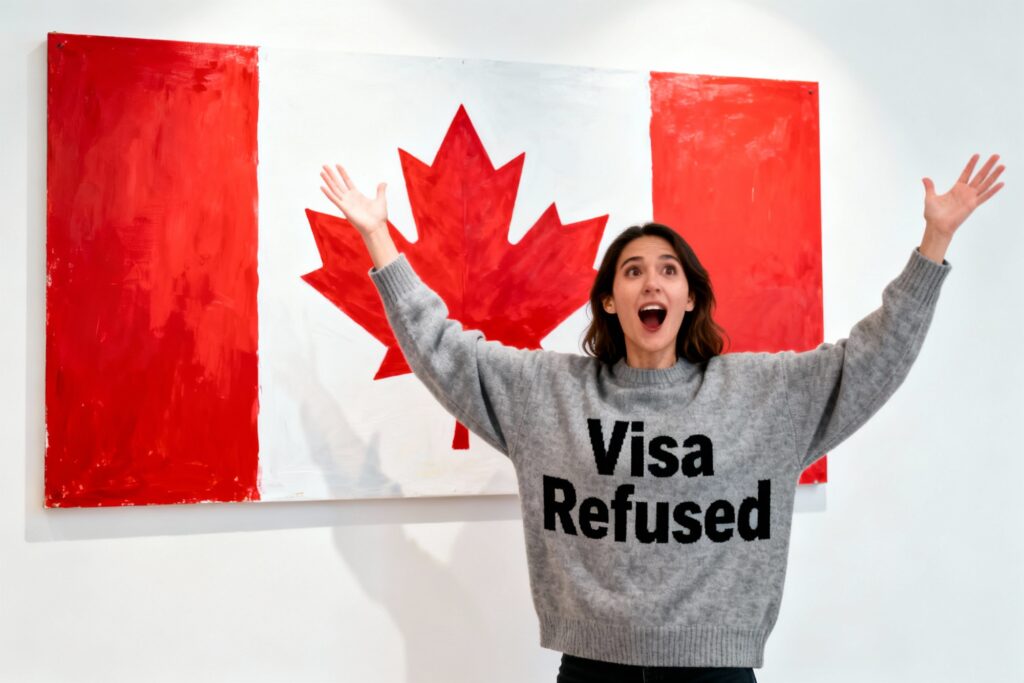The Start-up Visa (SUV) program offers an exciting pathway for foreign entrepreneurs to bring their innovative business ideas to Canada. However, one of its most misunderstood—and potentially devastating—aspects is the “all-or-nothing” rule. When a team applies together, a refusal for one essential member can mean rejection for the entire group, regardless of how qualified the other members may be.
This interconnected structure puts every applicant at risk. Even if your business idea is sound, if a teammate lacks language skills, fails to provide documents, or faces other issues, your family’s future in Canada could be at stake. But there is a solution many don’t know about: substitute evaluation under section 98.10(1) of the Immigration and Refugee Protection Regulations (IRPR). This legal mechanism allows IRCC officers to assess your independent potential to succeed in Canada—even if your startup team encounters challenges.
What Is Substitute Evaluation?
Substitute evaluation is a legal provision that allows immigration officers to approve your Start-up Visa application even if you or your team members don’t meet every single program requirement. It allows officers to look beyond the standard eligibility criteria and assess whether you can become economically established in Canada, based on a broader set of evidence. It is not a guaranteed right—you must formally request it, and your case must be compelling.
When Can You Ask for Substituted Evaluation?
Substitute evaluation can be your backup plan if IRCC refuses your Start-up Visa application for not meeting requirements like:
- Language test scores (you need CLB 5 in all four areas: reading, writing, listening, speaking)
- Settlement funds (having enough money to support yourself and your family)
- Other technical requirements in the program
Important Warning: The One Absolute Rule
There’s one situation where substitute evaluation absolutely cannot help you: if you didn’t have a valid commitment certificate from a designated organization when you submitted your application. This is a hard rule with no exceptions. If your commitment certificate was expired or invalid on your application date, substitute evaluation is not an option.
Key Success Factors for Substitute Evaluation
Federal Court decisions—like Helmzadeh v. Canada—have helped clarify what factors immigration officers are likely to consider during substitute evaluations. First and foremost, your application must be backed by a valid commitment certificate from a designated organization. Without this, IRCC will not consider substitute evaluation.
Beyond that, the Officers will evaluate the following factors:
- Active Canadian Income: Ongoing income from Canadian sources—such as employment, consulting, or freelance work—is a strong indicator of economic establishment. This is more persuasive than passive savings or projected future earnings.
- Employment in Canada (Self or Spouse): Stable employment held by either the main applicant or their spouse strengthens the case, especially if supported by pay stubs or contracts.
- Strong French or English Language Skills: Language proficiency, particularly in French, shows an ability to integrate into Canadian society and access broader employment opportunities.
- In-Demand Professional Skills: Qualifications in high-demand fields—such as healthcare, tech, engineering, or skilled trades—signal long-term employability in Canada.
- Evidence of Canadian Integration: Demonstrated efforts to settle in Canada, such as community involvement, professional association membership, school enrollment for children, or volunteer work, support the case.
- Professional Credentials Recognized in Canada: Degrees, certifications, or licenses that are accepted in the Canadian labour market show that you’re prepared to work and contribute immediately.
- Established Professional Network: Building connections with Canadian businesses, clients, or industry peers can help prove your potential for long-term success.
- Multiple Revenue Streams: Having more than one source of income—such as a job plus consulting or investments—shows financial stability and adaptability.
Build Your Backup Plan Early
The most successful SUV applicants treat substitute evaluation not as a last resort, but as part of their broader immigration strategy. This means building your independent path in parallel with your startup journey. Start by looking for local consulting opportunities, securing freelance contracts with Canadian clients, or getting hired part-time. Join professional associations, attend networking events, and begin documenting your settlement efforts early. If your family is already in Canada, enrolling your children in school and participating in the community are excellent ways to show commitment to Canadian life.
Over time, your profile should reflect both the strength of your startup and your independent ability to build a life in Canada. If the unexpected happens—such as a teammate being refused—you’ll be ready to pivot and protect your immigration future.
When to Request Substitute Evaluation: Timing Matters
At our firm, we strongly recommend including a general request for substitute evaluation with your initial application. This ensures that the immigration officer is aware of your intent and does not issue a refusal without first considering the possibility of substitute evaluation under section 98.10(1) of the IRPR. Including this request early on lays the groundwork for future updates and provides an added layer of protection in case your application encounters complications.
As your case progresses, we advise periodically updating your file with fresh supporting evidence that demonstrates your independent economic establishment in Canada. This may include new contracts, job offers, financial statements, or proof of community integration. Providing this material on an ongoing basis helps reinforce your case and signals continued commitment to your settlement in Canada.
Finally, if you receive a procedural fairness letter (PFL)—or if one is issued to a member of your SUV team—we strongly recommend preparing and submitting a comprehensive substitute evaluation request at that stage. This submission should be carefully crafted and supported by detailed documentation that addresses the officer’s concerns while clearly demonstrating your ability to succeed in Canada independently of your startup or team members. A well-prepared response at this critical moment can make the difference between a refusal and a successful outcome.
Final Thoughts: Resilience Is the Key
Entrepreneurship is unpredictable—and so is immigration. The Start-up Visa program offers a powerful opportunity, but it also carries real risks when you apply as a team. By building a strong, independent economic profile alongside your startup commitment, you give yourself and your family the best possible chance of success, no matter what happens.
Substitute evaluation is your safety net—but only if it’s backed by real evidence, strong planning, and a clear narrative. Done right, it shows IRCC that you’re not just coming to Canada with a business idea—you’re coming to build a meaningful life.
How We Can Help
At Sobirovs Law Firm, we understand the high stakes involved in your Start-up Visa journey. Our team can help you prepare a strong substitute evaluation request, develop a dual-track strategy, and ensure your application reflects both your business potential and your independent ability to succeed in Canada. Whether you’re starting fresh or responding to a procedural fairness letter, we’re here to guide you every step of the way.
Book a consultation today to discuss how we can support your success in Canada.















